Climate Access

How does climate change exacerbate gender inequality in access to resources and decision-making ?
Climate change exacerbates gender inequality by disproportionately affecting women and girls in access to resources and decision-making. Women often have limited access to resources such as water, food, and land due to cultural norms, lack of education, and poverty. They also have limited participation in decision-making processes due to cultural norms and lack of education. To address these issues, it is important to prioritize gender equality in climate change adaptation and mitigation strategies by ensuring that women's voices and experiences are taken into account when making decisions.

What is the impact of climate change on children's access to education ?
Climate change affects children's access to education through extreme weather events, health impacts, food security issues, and displacement and migration. These challenges make it difficult for children to attend school or continue their studies. It is crucial to take action now to mitigate the effects of climate change and protect the future of education.
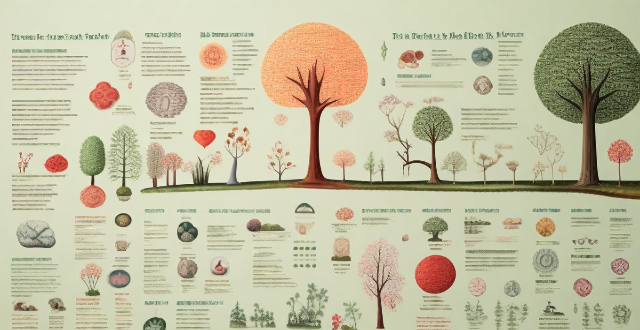
What is the relationship between climate change and environmental racism, and how can we address this issue through climate justice ?
Climate change and environmental racism are interconnected issues that disproportionately affect marginalized communities. The relationship between the two is multifaceted, involving displacement, health impacts, economic disparities, infrastructure vulnerabilities, and limited access to information and resources. To address these issues, pursuing climate justice is crucial, which involves ensuring equal representation in climate policy decisions and equitable distribution of benefits and burdens associated with climate action. Key strategies for achieving climate justice include community engagement, equitable resource allocation, health protection measures, economic opportunities, infrastructure resilience, access to information, legal protections, and global cooperation.

How can we ensure equitable access to climate adaptation resources within communities ?
The article discusses strategies for ensuring equitable access to climate adaptation resources within communities. It emphasizes the importance of community participation, transparent planning processes, fair allocation of resources, diverse funding mechanisms, and monitoring and evaluation. The goal is to build resilient and sustainable communities that can cope with the impacts of climate change.

Is climate-smart technology affordable for smallholder farmers ?
Climate-smart technology is essential for farmers to adapt to climate change, but its affordability is a concern for smallholder farmers. Key factors influencing affordability include the cost of technology, access to financing, potential returns on investment, the need for training and education, and market access. Governments can offer subsidies and grants, while microfinance institutions provide tailored loans. Partnerships and research focused on local conditions can also make technology more affordable. Capacity building initiatives like extension services and community workshops further support farmers in adopting these technologies. Addressing these factors can help smallholder farmers benefit from climate-smart technology.
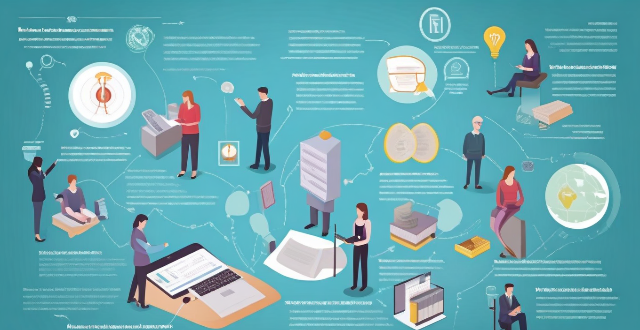
How can we address the intersectionality of climate change and gender inequality ?
Addressing the intersectionality of climate change and gender inequality requires a comprehensive approach that considers both environmental and social dimensions. Key points include recognizing the intersectionality, including women in decision-making processes, promoting gender-sensitive climate policies, supporting women's access to education and empowerment, ensuring access to sustainable energy and resources, addressing gender-based violence, and fostering collaboration and partnerships. By taking these steps, we can work towards a more equitable and sustainable future for all.

What are the challenges faced by women in adapting to climate change ?
Women face unique challenges in adapting to climate change related to their roles as caregivers, farmers, and community members, limited access to resources and decision-making power. Key challenges include limited access to education, financial resources, land and property rights; caregiving responsibilities such as water collection and childcare; limited participation in decision-making processes due to political underrepresentation and cultural norms; and impacts on livelihoods through changes in agriculture, income generation, and migration. Addressing these challenges requires a gender-sensitive approach to climate change adaptation that provides education, improves access to resources, and supports women's roles.

In what ways does climate change contribute to poor nutrition and malnutrition ?
Climate change affects nutrition and health by causing extreme weather events, changes in crop production, loss of biodiversity, food security issues, and limited access to clean water. These factors can lead to malnutrition and related health problems. It is important to take action to mitigate the effects of climate change and ensure that everyone has access to adequate nutrition and resources for good health.

What is the relationship between social inequality and access to resources for climate adaptation ?
The relationship between social inequality and access to resources for climate adaptation is influenced by economic, social, and political factors. Wealthier individuals often have more resources, while marginalized groups may face discrimination. Education plays a crucial role in raising awareness about climate change, and cultural beliefs can impact adaptation strategies. Government policies can either exacerbate or mitigate social inequality, and participatory decision-making processes are essential for equitable resource allocation. Addressing social inequality requires equitable resource allocation, capacity building, community-driven approaches, and targeted interventions for vulnerable populations.

What role does access to healthcare play in mitigating the health effects of climate change ?
The text discusses the role of healthcare accessibility in mitigating the health effects of climate change. It highlights the importance of preventive care, emergency response, and chronic disease management in reducing vulnerability to climate-related health risks. The text also explores direct and indirect effects of climate change on human health, such as heat-related illnesses, respiratory issues, vector-borne diseases, mental health impacts, nutritional impacts, and displacement and migration. Finally, it suggests adaptation strategies for healthcare systems, including building resilient infrastructure, integrating climate change considerations into public health systems, and training community health workers on climate change impacts.

How does climate change influence childhood diseases and nutrition ?
This article discusses the impact of climate change on childhood diseases and nutrition, highlighting increased risks of infectious diseases, respiratory issues, heat-related illnesses, waterborne diseases, food insecurity, nutrient depletion, access to nutritious foods, and dietary diversity. It emphasizes the need for a multifaceted approach that includes mitigating greenhouse gas emissions and adapting to changing environmental conditions while ensuring equitable access to healthcare and nutritious food for all children.
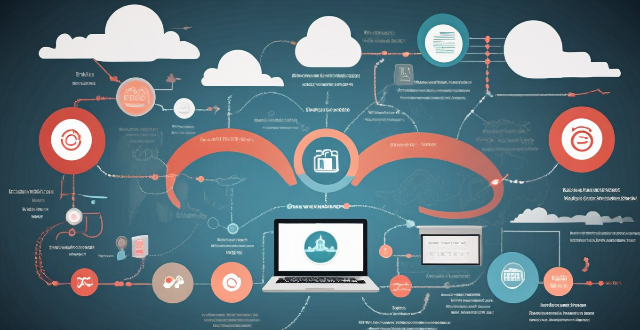
Do unlimited data plans really provide unrestricted internet access ?
Unlimited data plans are marketed as offering unrestricted internet access, but there are often limitations in practice. These include network management practices during peak hours, fair use policies that may reduce speeds for excessive usage, and throttling after reaching certain data thresholds. Additionally, coverage areas and hidden costs can also impact the user experience. It's important to understand the specific terms of your plan before assuming you'll have completely unfettered access.
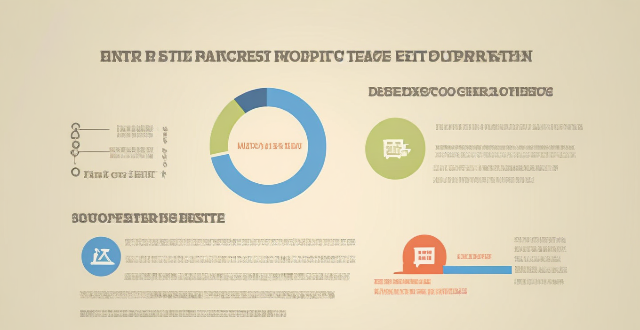
How do I manage my child's Apple ID and restrict their access to certain content ?
This guide provides step-by-step instructions for parents on how to manage their child's Apple ID, set up Family Sharing, and restrict access to certain content using Screen Time and Content & Privacy Restrictions. The goal is to ensure online safety for children by monitoring their activities and limiting their exposure to inappropriate content.

What are the potential health risks associated with climate refugees ?
Climate refugees face potential health risks related to physical and mental health, as well as social determinants of health. These risks include exposure to environmental hazards, limited access to healthcare services, malnutrition and food insecurity, trauma and post-traumatic stress disorder (PTSD), grief and loss, social isolation and alienation, housing instability and overcrowding, limited access to education and employment opportunities, and vulnerability to human rights abuses. Addressing these risks requires a comprehensive approach that includes improving access to healthcare services, ensuring adequate nutrition and safe housing, providing mental health support, and promoting social inclusion and protection against human rights abuses.
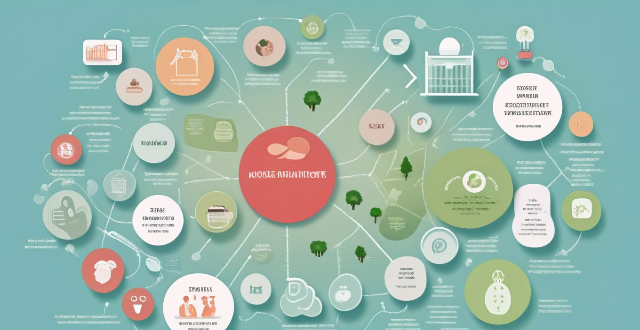
How can we improve access to healthcare services in developing countries ?
Improving access to healthcare services in developing countries is crucial for ensuring the well-being of individuals, regardless of their geographical location or economic status. Key strategies include investing in healthcare infrastructure, training and recruiting healthcare professionals, implementing community-based health programs, and utilizing technology and innovation. By adopting a multifaceted approach that addresses various aspects of the healthcare system, it is possible to make significant strides in improving access to quality healthcare services for all individuals living in developing countries.

What policies have countries implemented to ensure equal access to education for both sexes ?
Policies for Equal Education Access: Key Policies and Challenges

How can we ensure that marginalized communities have access to vaccines ?
Ensuring that marginalized communities have access to vaccines is crucial for global health equity. This article explores strategies to address barriers such as lack of awareness, limited access to healthcare services, mistrust of the healthcare system, financial barriers, and logistical challenges. Education and information campaigns, mobile clinics and outreach programs, building trust through partnerships, providing affordable or free vaccines, and improving infrastructure and supply chain management are among the solutions discussed. By implementing these strategies, we can work towards a world where everyone has equal access to life-saving vaccines.

How can I control who has access to my personal data ?
How can I control who has access to my personal data? To control who has access to your personal data, it's important to: 1. Understand what personal data you have and where it is stored. 2. Review privacy policies and settings of websites and apps you use regularly. 3. Use strong passwords and two-factor authentication to protect your accounts. 4. Limit the amount of personal data you share online. 5. Regularly review and update your privacy settings. By taking these steps, you can help protect your personal data from unauthorized access and ensure that it remains private.

**How can I control who has access to the files I share through iCloud ?
The text provides a guide on how to control access to files shared through iCloud. It suggests setting up iCloud Family Sharing for sharing with family members, using iCloud Drive for general file sharing, creating Shared Albums for photos and videos, and managing access to specific apps that use iCloud. These steps ensure that only the intended recipients can view and edit the shared files.

How does climate information sharing help in mitigating climate change ?
Climate information sharing is vital for mitigating climate change by enabling informed decision-making, raising public awareness, supporting research and innovation, promoting international cooperation, facilitating adaptation strategies, and leveraging technology. It empowers governments, businesses, communities, and individuals to take actions that reduce greenhouse gas emissions and adapt to the changing climate.
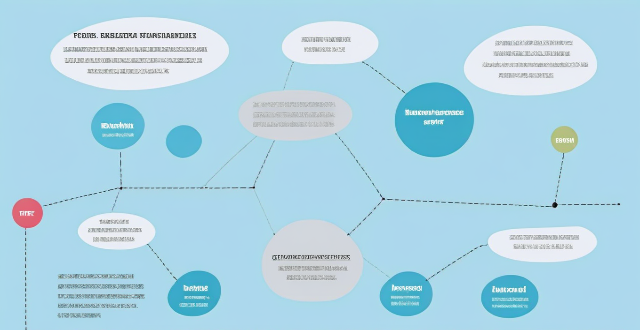
**How can I access and manage my iCloud data from a non-Apple device ?
This guide provides step-by-step instructions on how to access and manage iCloud data from a non-Apple device. It includes prerequisites such as having an active iCloud account and using a compatible web browser. The steps include visiting the iCloud website, logging in to your account, choosing a service to access, managing your data, and signing out of iCloud when finished. Common actions within each service are also outlined. By following these steps, users can effectively access and manage their iCloud data from any non-Apple device with an internet connection and a compatible web browser.

How can I control which apps have access to my location data on my Apple devices ?
Managing app access to location data on Apple devices is crucial for privacy and security. Here's a guide: 1. **Access Privacy Settings**: On iOS, go to Settings > Privacy > Location Services. On macOS, click the Apple menu > System Preferences > Security & Privacy > Privacy > Location Services. 2. **Toggle Location Services**: Turn on the main switch if you want apps to use your location; turn it off to disable all tracking. 3. **App-by-App Permissions**: Set permissions for each app under Location Services. Options include Never, Ask Next Time, While Using the App, and Always. 4. **System Services**: Manage system-level services that use location data in the Location Services settings on both iOS and macOS. 5. **Frequent Permission Checks**: Regularly review and revoke unnecessary permissions, especially for apps not obviously related to location services. Additional tips include keeping software updated, reading app privacy policies, and using privacy reports in iOS to monitor app access to location data.

What is climate financing ?
Climate financing is essential for implementing projects that mitigate climate change and adapt to its impacts. It includes public sector involvement, private sector participation, support from multilateral and bilateral institutions, and innovative mechanisms like climate taxes and crowdfunding platforms. These financial resources are vital in addressing the global challenge of climate change by enabling access to capital for sustainable initiatives.

How might extreme weather events due to climate change impact children's access to safe housing and shelter ?
This article discusses the impact of extreme weather events on children's access to safe housing and shelter. It highlights how these events can cause destruction of homes and communities, displacement and homelessness, health risks, psychological trauma, and disruptions in education. The article emphasizes the need for concerted efforts from governments, communities, and individuals to address these challenges and build more resilient infrastructure.

How does the perception of climate-related risks vary across different cultures and societies ?
The perception of climate-related risks varies across different cultures and societies due to factors like historical experiences, cultural values, socioeconomic conditions, education levels, access to information, political landscapes, and religious beliefs. Understanding these variations is crucial for developing effective strategies to address climate change globally.

How does the Paris Climate Agreement address climate justice ?
The Paris Climate Agreement, adopted in 2015, emphasizes climate justice and the need for all countries to take action to limit global warming. It recognizes the unequal impacts of climate change on vulnerable communities and developing countries, and provides mechanisms for financial support, capacity building, and loss and damage compensation. The agreement aims to create a more equitable and just response to the global challenge of climate change.
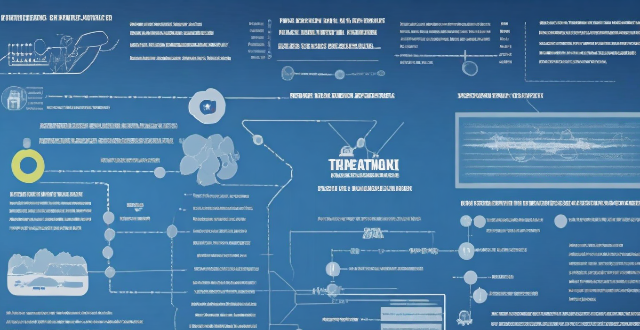
How do international climate agreements influence national climate policy assessments ?
International climate agreements influence national climate policy assessments by setting global goals and targets, providing guidance on best practices, facilitating technology transfer and cooperation, enhancing transparency and accountability, and offering financial support for climate action. Examples of such agreements include the UNFCCC, Kyoto Protocol, and Paris Agreement.

What is the significance of updating and strengthening national climate commitments ?
The significance of updating and strengthening national climate commitments lies in mitigating the adverse effects of climate change, building resilience against its impacts, creating economic opportunities through a green economy, improving social welfare and health, and demonstrating political leadership for global cooperation. By doing so, countries can move closer to achieving the long-term goals set by the Paris Agreement and secure a sustainable future for all.
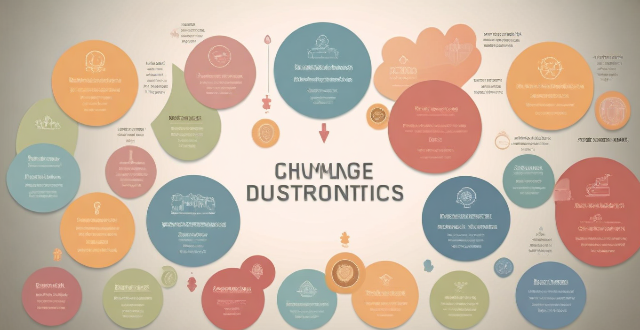
How do climate change negotiations tackle the issue of climate justice ?
Climate change negotiations address the issue of climate justice by recognizing the disproportionate impacts on vulnerable populations, promoting equitable access to resources and technologies, adhering to the principle of common but differentiated responsibilities, ensuring inclusivity in negotiation processes, addressing loss and damage, promoting sustainable development, setting long-term goals and ambitions, and maintaining accountability. These efforts aim to create a more equitable and resilient global response to the challenges posed by climate change.

How can climate governance address the issue of climate refugees ?
Climate change is causing people to be displaced from their homes, leading to the emergence of "climate refugees." These individuals face challenges such as lack of legal recognition, inadequate response mechanisms, resource scarcity, social integration difficulties, and economic impacts. To address this issue, a comprehensive approach to climate governance is needed, which includes developing frameworks for international agreements and legal recognition, establishing funding mechanisms, building adaptation and resilience, managing migration, empowering communities, offering skill development, ensuring access to health services, coordinating policies, and continuously monitoring and evaluating policies.